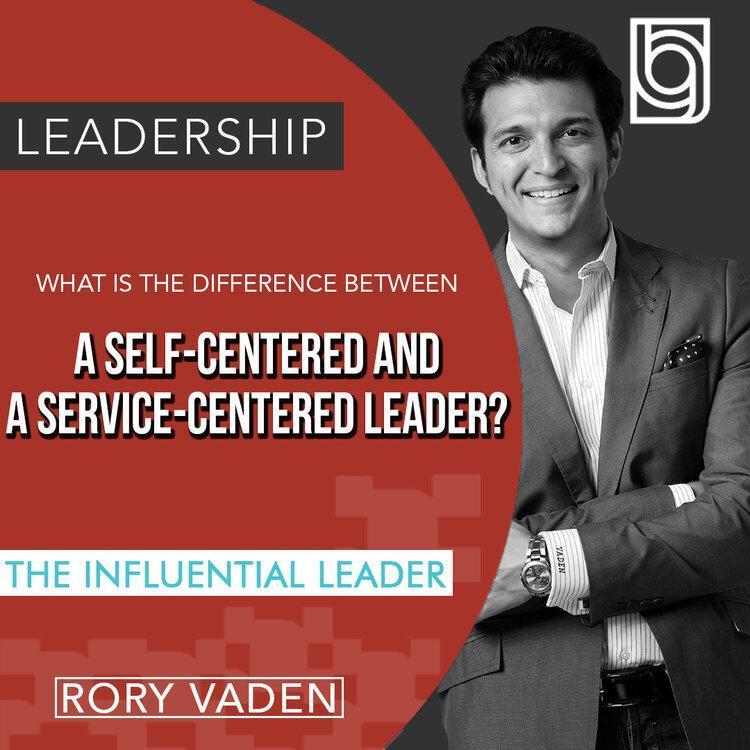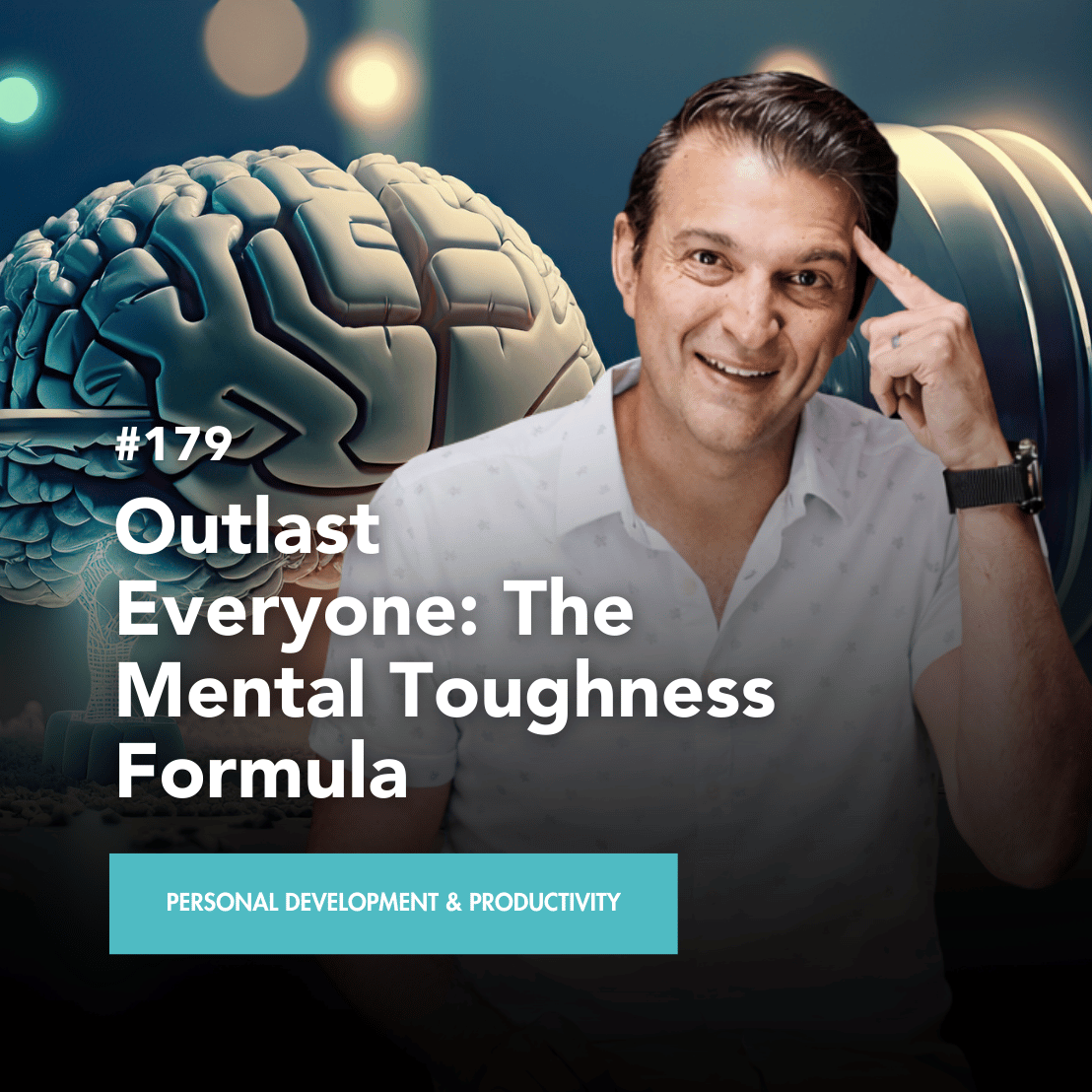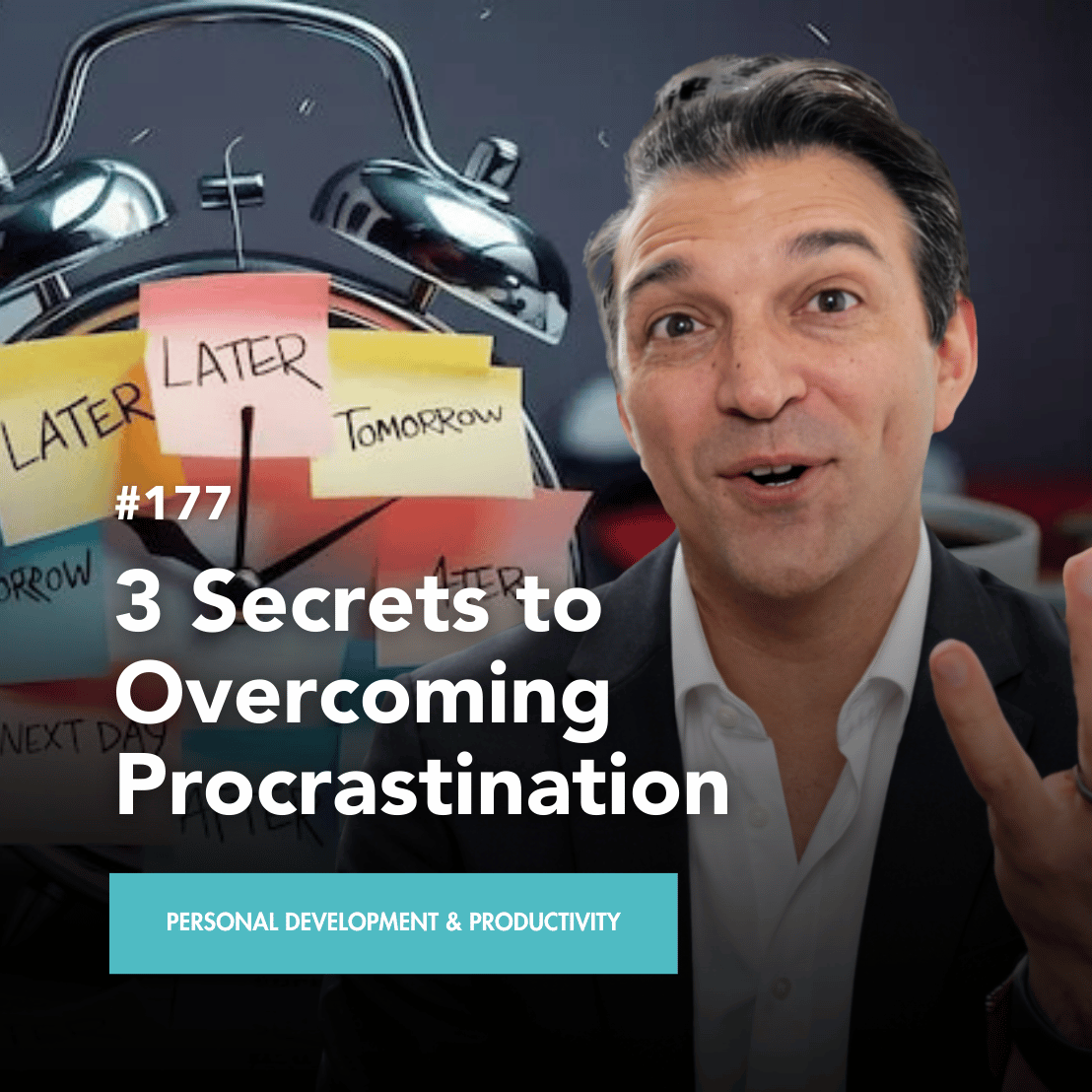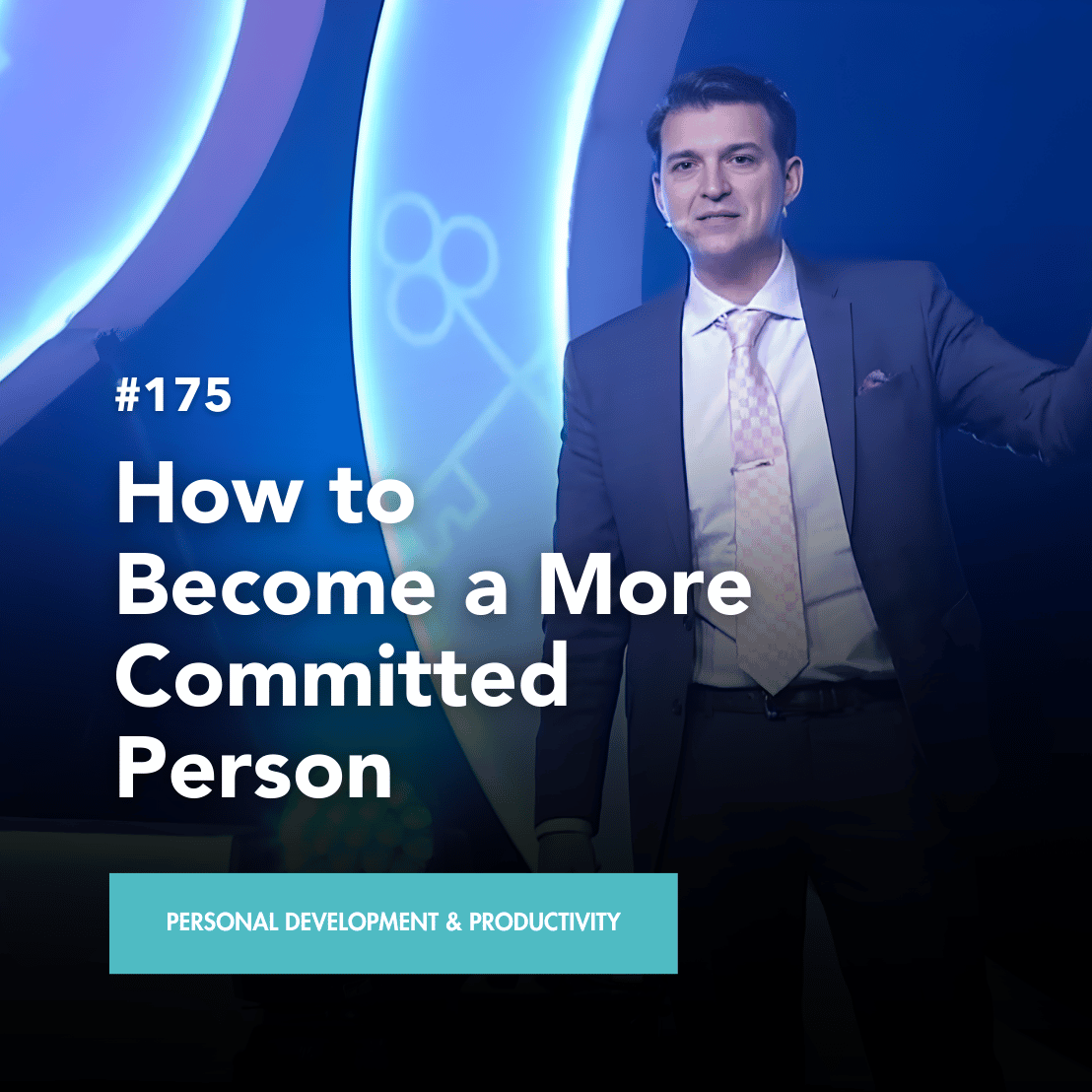Lead by Example
When you think about leading by example, it’s not just about what you do.
Leadership by example is about who you are.
This is something that I think people misunderstand.
Leadership by example sometimes is exactly what you do.
In some cases, you do need to model exactly what to do.
That is a part of it, but there’s a higher level of this that represents the difference between self-centered leaders in service and service-centered leaders.
The challenge is that self-centered leaders try to be right.
That is part of the evolution because we’re trying to advance or get better as a performer.
But when we say what got you here as a performer won’t get you there as a leader is because there’s a shift that needs to happen.
Service-centered leaders, however, they’re not trying to be right.
They’re trying to do right.
They don’t care about whose idea it is.
They just want to know what it is.
It’s not about who’s right. It’s about what’s right.
That’s something that Tom Peters wrote years ago that represents the evolution of the maturity of an influential leader.
Self-centered leaders tend to blame and deflect because it strikes at their egos. The idea that I made a mistake strikes my ego.
It doesn’t mean you’re a bad person. It just means that when we do this, the natural human response is to deflect that off to somebody else.
Service-centered leaders, though, do the opposite.
They own those mistakes. They own the criticism.
They believe in the idea that every problem in their organization is their responsibility.
That is the level of ownership that they take. Every problem that exists in their organization reflects them, specifically, every negative attitude that exists.
There are some problems that you did not cause, but the attitude that my team has around problems is a direct reflection of my attitude about how I go about solving problems.
How to Grow as a Leader
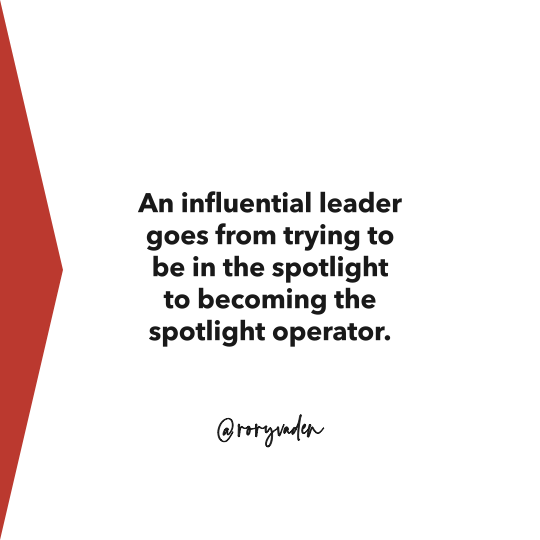
That is taking an extreme level of ownership. That is what influential leaders do.
Self-centered leaders will use circumstances as excuses; service-centered leaders use circumstances as opportunities.
These are chances to serve other people. These are chances to step up and solve problems.
I must mature to the point that I’m outside of what’s convenient and easy for me.
I must evolve to thinking about how I can help solve this problem for another person.
Self-centered leaders lift themselves up; service-centered leaders lift others up.
One of my favorite analogies for this comes from my friend Ron Marks, who talks about that when you’re a performer, it’s all about being in the spotlight. You win awards and incentive trips, make more money, and break records.
As a performer, you are trying to be in the spotlight.
But as an influential leader, you go from trying to be in the spotlight to become the spotlight operator.
You’re the one behind the spotlight and you are redirecting the spotlight on other people because that’s what leadership is- developing these other people.
That’s an evolution, especially for someone like me, who is such an achiever.
It was hard to make that transformation.
Self-centered leaders want more respect. They care very deeply about what other people think about them.
It’s not necessarily a bad thing. It just becomes a limiting thing.
As a leader, what service-centered leaders want is more results. They want more results for other people, more results for the organization.
It’s an evolution. It’s a shedding of the ego of self-centered leaders.
Self-centered leaders get defensive.
Service-centered leaders admit when things go wrong.
Why?
They don’t care about getting more respect.
They just want to do what the right thing is.
They don’t take it personally when it goes wrong, because it’s not about what do people think about them.
It’s just about helping the team succeed.
They’re shedding their own need for their ego.
Self-centered leaders take credit.
Service-centered leaders don’t care about credit because they care about what’s doing right for the team so they share credit.
Self-centered leaders go alone. Service-centered leaders go with a team.
One of my favorite leadership lessons is an African proverb.
It says, “If you want to go fast, go alone. But if you want to go far, go together.”
If you want to go fast, just go alone but if you want to go far, you got to go with a team, and going with a team sometimes means slowing down a little. It takes time to bring other people with you, but you go farther in the long term.
Self-centered leaders are proud. Service-centered leaders are humble.
Self-centered leaders point out problems. And they’re good at identifying problems.
Why?
Because they’re achievers.
Anything that gets in their way, they immediately recognize, and they point it out.
Why?
Because they resent the fact that there is a problem. That problem is holding them back from where they want to go.
I would say again, it’s not necessarily that it is a bad thing, but I would say it is a sign of immaturity as a leader.
A mature leader will be in some ways grateful for these immature leaders because they can count on these people to point out the problems.
The real balance is to not take it personally and get defensive. Just be grateful for the fact that someone is pointing out the problems even though you’re going to feel like you’re under attack.
Guess what?
Being the leader means you’re under attack constantly because every problem that exists, exists because of you.
It is your problem. It is your fault. It is your obligation and responsibility to solve so you will feel like you’re under attack.
Guess what? Welcome to the club.
This is what it means to be an influential leader.
If you’re not under attack, it’s because you’re not leading.
It’s because no one is looking to you to help solve problems.
But influential leaders don’t spend much time on the problem.
Influential leaders immediately move to offering solutions.
Self-centered leaders react.
Service-centered leaders respond.
Self-centered leaders protect themselves; service-centered leaders protect the team.
If somebody is operating in a self-preservation mode, it is a sign that they have a lot of developing to do to become a leader.
Again, it’s not bad or wrong. It’s very natural.
It just means they haven’t yet developed to become an influential leader. It’s part of the journey.
You must become a high achiever, which needs means you must be a driver.
That means you need to achieve and focus.
What got you here as a performer won’t get you there as the leader.
All of us, no matter where we’re at on the journey, can have perspective and grace. We can have grace for others and grace for ourselves.
To recognize that I am under attack all the time. No wonder I’m defensive, but you know what? I shouldn’t be defensive.
They’re not attacking me. They’re helping me understand what needs to happen to get the team to the next level.
And for that, I should be grateful.
Defensiveness and taking things personally is a sign of self-centeredness. I am internalizing what people are saying as an attack on me.
If I am operating in a service-centered influential leader mindset, I am simply processing what they are saying as input to help me move the entire team forward.
I’m not saying it’s easy. I’m saying it’s simple, though.
This is extremely difficult.
This is a very rare level of area that someone gets to.
Only a very small percentage of people will ever get to the level that we can even have this transparent conversation.
Because for some people, the fact that I’m saying the things I’m saying, they’re taking them personally because I’m saying them.
It wouldn’t be wrong to do that. It would be natural. I would take it the same way.
That is something that I realized. I am constantly protecting myself and I need to move to protect the team.
And if I’m protecting the team, that means I’m protecting the other leaders.
I’m protecting my partners, my colleagues, and my customers rather than self-preservation.
It’s team preservation which leads us to the next tell-tale sign of self-centered leaders versus service-centered leaders.
Self-centered leaders are emotionally volatile. Service-centered leaders are emotionally stable.
Why?
People who take things personally respond emotionally because it feels like an attack on me personally.
My response is emotional, very vibrant, and visceral because it’s like you’re attacking me.
An influential leader has enough perspective to know when they’re giving me feedback, it’s not about me.
It’s just about the state of things.
It means they trust me enough to try to help them resolve something.
Even if they’re coming at it in an immature way, it’s my responsibility to process that maturely and to maintain stability.
Part of it is just accepting the idea that your job as a leader is constantly solving problems, constantly dealing with challenges, and constantly catering to people.
That is what makes a leader.
A leader is the ability to navigate people and personalities in conflict and challenges.
And if your problems are getting bigger, it’s because you’re getting stronger as a leader.
We just got to give ourselves the perspective, but this is what real leadership looks like to lead by example.
